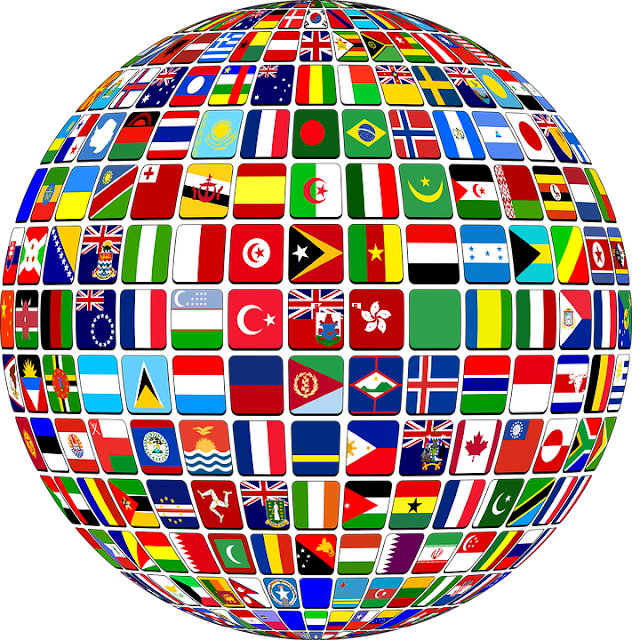As Independence day rolls around in my country, I am reminded of how small most of our worlds are. Many people don't have the opportunity (or the means) to travel around the world and experience other places first hand. But with the internet, we do have the ability to learn about other places.
Besides just being interesting, learning about other places, how people there live, how things are done, what their circumstances are...all these things help give us a broader perspective on our own lives. It's natural to go through life assuming that 'most people are like you,' but chances are there are a whole ton of people who live very different lives than you do.
With recent global events as well as national issues, many people have strong opinions on how things should be done...and about what is possible. However, most of those opinions are just that: opinions. They aren't based on facts or even a good hypothesis. They are simply how people feel things should be. And often they are built upon the experiences we have...living the lives we have lived.
It can be very hard sometimes to visualize a different way of life, but the more we read about (or watch about) how people who are different to us live, the more our horizons grow. We start to see that there are many ways of living, and many ways of doing things. We discover how other places handle issues, how they treat people, how they approach work or family or religion or government.
In almost all cases, as you start learning about other places, you realize that some people have it better than you, and others have it worse. Understanding both sides of an issue helps you better recognize the full scope of it, and to see where you fall in the greater scheme of things. Often, we think our situation is either good or bad, and we may find that our situation isn't really what we thought it was.
When you live your whole life in a single country, it's very easy to get caught up in that country's identity. To believe the things you were taught in school, by your community, or by what you see with your own eyes in the world around you. But you have to remember, all of those things are coming from a singular perspective: that of the nation in which you live.
Think of it like a lens that tints everything you see in a particular color. If you put on glasses that have red lenses, not only will it shift how other colors appear, making you think they are something they aren't, but some things will be invisible to you. When we really make an effort to learn about how other countries do things, we try on their glasses for a bit, and we start to see things very differently.
There is absolutely nothing wrong with loving the country you live in. There isn't even anything wrong with having very conflicted feelings about the country you were raised in. Many people identify very strongly with parts of their national identity, even if there are serious downsides. You can even love your country and intensely dislike your government.
What learning about other countries does is help you see places where things could be different (whether that means better or worse). It helps you recognize when you are being fed lies and what you might be taking for granted.
It also simply makes you more educated. When speaking with people from all over the world, you don't sound like someone who has no clue about how other places work. Making assumptions, whether you are assuming your country is the best, the worst or simply that everywhere else operates the same way, can make you seem quite ignorant when you make statements based on these false assumptions.
Whether you choose to take a stand in the direction your country is taking or not, educating yourself on how other countries handle things shows you the broader scope of how the world works. It lets you make much more informed assessments of how things in your personal life are, compared to other people. You may be surprised at how many things we take for granted just aren't available to others. Or how many things we have been told are impossible are being done every day in other countries.

No comments:
Post a Comment